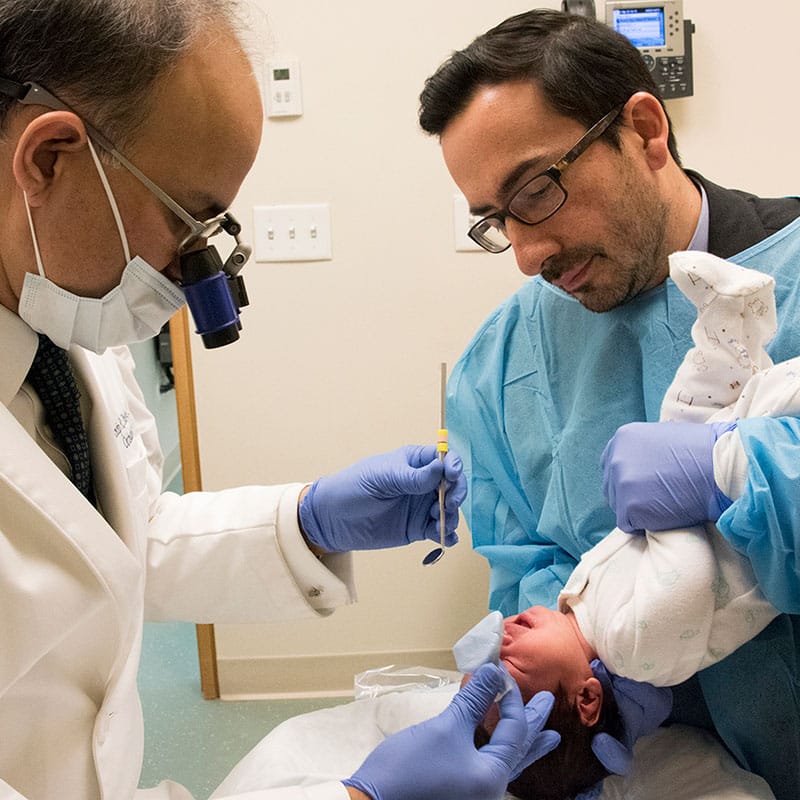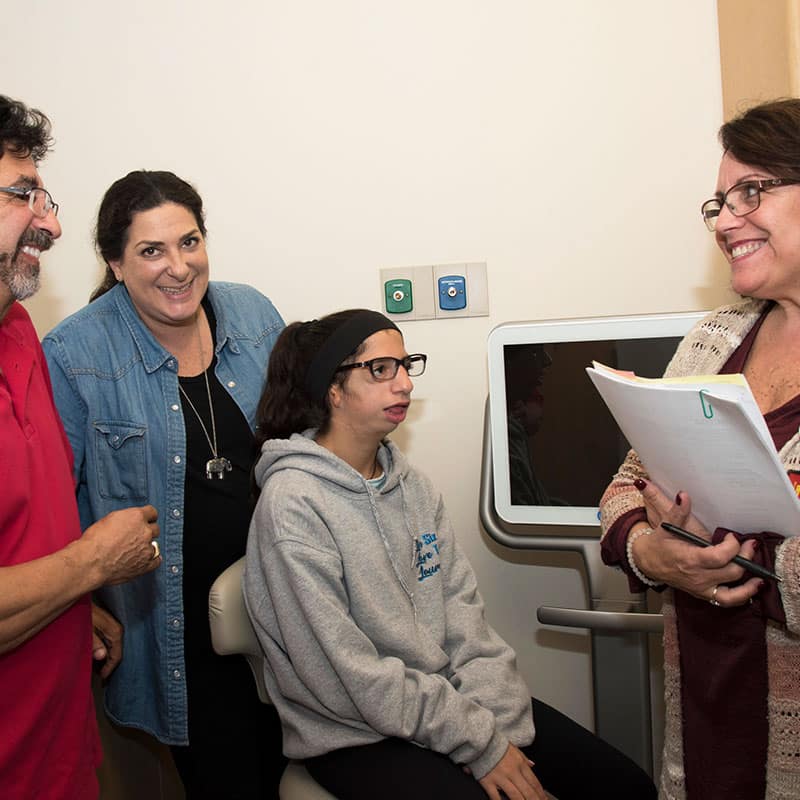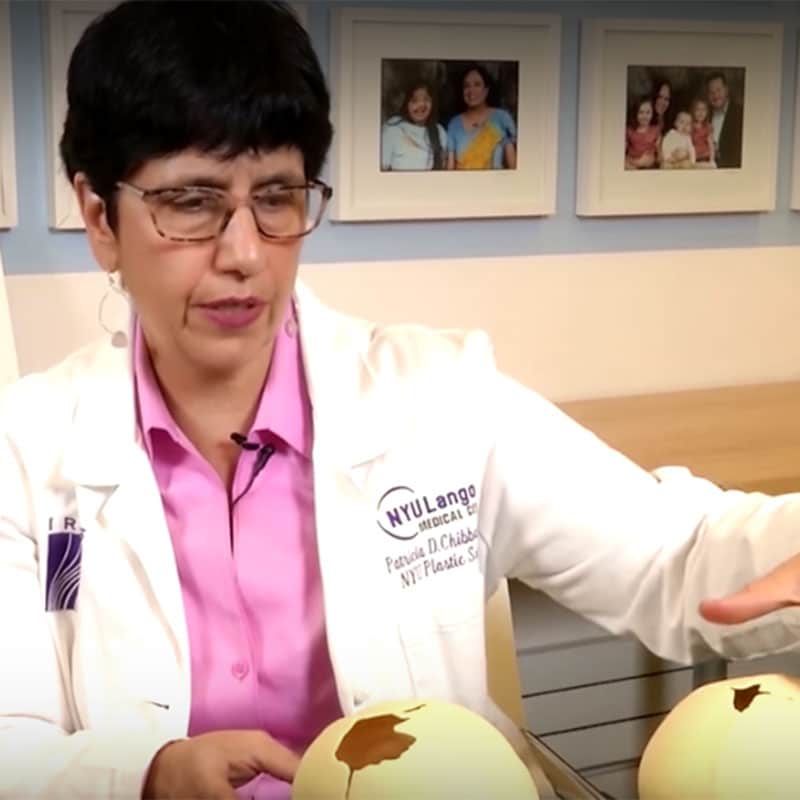Tips for Healthcare Appointments
Please download the parent guides in a PDF format by clicking below:
Making The Most of Your Child’s Craniofacial Healthcare Appointments
As parents, you are an especially important part of your child’s craniofacial team. You and your family will have input into your child’s treatment plan, and you will be asked to make certain decisions on behalf of your child. To make the best decisions, you need to understand all the options available to you and your child. The following suggestions are intended to prepare you to make informed decisions as you interact with your child’s healthcare professionals.
Your child will often be seen by multiple clinicians from different specialties during a single visit at a craniofacial center. An advantage of this approach is that it prevents you from having to make multiple appointments at each healthcare professional’s individual office. However, it can initially be overwhelming to meet with many clinicians at once. During such a visit, the healthcare providers will ask you and your child many questions and often talk amongst themselves. Open communication is essential for a successful partnership. It is particularly important that your child’s doctor and other team members explain all the options to you. Do not hesitate to ask the clinicians any questions you may have.
When interacting with healthcare professionals, you may notice that clinicians from different fields often use different terminology. While it can be challenging at first, as you communicate more with clinicians from various fields, you will become increasingly comfortable translating between the specialties.
Preparing for a successful appointment
Being prepared for your child’s appointments and keeping all medical information organized increases the likelihood that your child’s visit is beneficial, efficient, and productive. Prior to your child’s appointment, take some time to do some thinking:
- Think about what information you will need to make informed decisions about your child’s medical condition and treatment plan. If possible, discuss this with your family and friends.
- Take some time to write down any questions you may have. It can help you to focus your thoughts and concerns.
- Be prepared to discuss your goals for your child. Be clear about what you want to address during this appointment and during future appointments.
On the day of the appointment, if possible, bring a family member or friend to your child’s appointment. When receiving lots of new information it can be helpful to have a second person hear what you are told in case you miss something or are distracted.
Things to bring to your child’s appointments
- All your insurance cards, and/or state and federal entitlement program cards. When the office makes a copy for their records, be sure that the originals are returned to you.
- Your child’s medical history, including addresses and phone numbers of all previous physicians.
- Your family health history.
- Your journal and a pen to write down your questions and answers to your questions.
Use the myFace Parent Worksheet for Your Next Appointment
myFace has put together a resource to help you organize the information you need for your child’s appointment.
Keep a journal
Keeping a journal of observations of your child is a helpful way to document and explain to your medical team what your child experiences daily. This is especially helpful if your child has a behavior or symptom that appears occasionally, but not during your child’s appointment. Provide detailed accounts of what you observe. You may want to note the following related to your child and his or her care in your journal:
- Medication history: those your child is currently taking, including the dosage and frequency of use, any previous medications prescribed, and any side effects experienced at any time. Make sure you have the correct spelling of the medications.
- Any alternative treatments your child has been given, including vitamins, supplements, or other over the counter medications. Be clear about any and all treatments your child has encountered.
- All observations of behaviors, symptoms, or concerns (e.g., sleep patterns, changes in behaviors, appetite).
- Notes on specific recommendations or information from particular healthcare providers (e.g., Dr. Jones told me my child needs a hearing test because…” or “Dr. Smith wants my child to have a swallow test because…”)
- Any questions that arise. Keep the journal in a convenient place so that when you think of a question you can write it down quickly before you become distracted and forget it.
- A “to do” list regarding your child’s medical care (e.g., to schedule an appointment for a hearing test, to bring a copy of your child’s medical report to his or her next appointment, etc.). It’s normal to forget these little details, so being able to refer to your list can be helpful.
Bring this journal with you to every appointment. Write down the date on a new page for every appointment and note what happens.
Prepare to provide medical history
When planning a visit to a healthcare professional, make sure the clinician’s office has your child’s medical history. If you are visiting a healthcare professional for the first time, you should have your child’s medical history sent from your pediatrician or other referring physician. Keep copies of all reports about your child. You may obtain copies of your child’s medical record upon request. The medical record contains copies of all test results as well as progress reports. In certain circumstances, it may also be necessary to obtain copies of films (e.g., MRI, CT, etc.).
During your child’s treatment, he or she will most likely have appointments with various medical specialists. Make sure these specialists send their reports to your child’s pediatrician and to the craniofacial team. You may also request a copy of a specialist’s report, which you can bring to your next appointment. This may be helpful in the event you have an appointment with a clinician who has not yet received a copy of a report.
During your appointment
- Ask any and all questions you have. All the medical professionals who examine or treat your child should be prepared to answer your questions.
- If you do not understand what you are being told, ask to have information repeated. Sometimes medical professionals use terms or abbreviations that may be unfamiliar to you. If you ask for clarification, your healthcare provider will explain what he or she said in a way that is understandable to you.
- Before leaving a physician’s office, remember to write down the names and contact information of the healthcare professionals and staff you encountered.
What questions should I ask?
An appointment with a physician or craniofacial team member is an opportunity to discuss any questions or concerns you may have regarding the care of your child. Do not feel that a question is “silly” or “not important.” All your questions are valid. Your healthcare team will want you to feel comfortable and will want you to leave your appointment with your questions answered.
Example questions for the craniofacial team:
- How would you describe my child’s health condition(s)?
- How often do you see this condition in other children and what can be done to treat it?
- What other health issues may my child experience?
- What medical tests should my child have?
- Do you know of another family I could speak with who has a child with the same or similar condition?
- What treatment do you recommend? What short-term treatment? What long-term treatment?
- Have you performed this treatment on other children?
- Do you have any before and after photographs of children who have received the treatment you recommend for my child?
- What complications may occur from the treatment you are recommending?
- What follow-up care may be needed?
- Will my child have any activity restrictions because of the recommended treatment?
- Will my child require more than one surgical procedure? If so, how many?
- What may happen if my child does not receive any treatment?
- Are there options other than surgery?
Talking to other parents can also help when preparing to meet with a physician.
Getting a second opinion
Some parents find obtaining a second opinion helpful when considering major treatment decisions about their child, such as surgery. Seeking a second opinion does not mean that you do not trust your child’s healthcare team. You want to be sure you are making the right decision. Obtaining a second opinion will reaffirm this trust. Physicians and craniofacial teams most often welcome and encourage second opinions. In fact, they may be able to give you the names and numbers of other specialists. Your team will want you to be completely comfortable with the treatment plan. In addition, your health insurance carrier may require second opinions to proceed with a surgical intervention. Obtaining a second medical opinion requires some effort. You will need to find a physician, obtain copies of your child’s medical records, and repeat your child’s medical history. Some insurance carriers do not cover second opinions, so it is important to discuss obtaining a second opinion with your insurance carrier before you do so. However, while second and even third opinions require time and resources, it may be worth the effort to feel comfortable and secure with the team you select for your child’s care.
Being prepared for your child’s appointments and keeping all medical likelihood that your child’s visit is beneficial, efficient, and productive.







